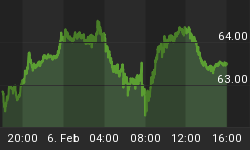When you can't change public opinion any other way, you buy it. That is the message from Huffington Post today in Economists Opposing Fed Audit Have Undisclosed Fed Ties.
As the debate over an audit of the Federal Reserve intensifies in the House, one camp is trotting out eight academics that it calls a "political cross section of prominent economists."
A review of their backgrounds shows they are anything but.
In a letter to the House Financial Services Committee earlier this month, all eight wrote that they support the type of amendment now being introduced by Rep. Mel Watt (D-N.C.). Watt's approach purports to increase Fed transparency while it actually would tighten restrictions on any audits that could go forward.
But far from a broad cross-section, the "prominent economists" lobbying on behalf of the Watt bill are in fact deeply involved with the Federal Reserve. Seven of the eight are either currently on the Fed's payroll or have been in the past.
The Fed connections are not outlined in the letter sent around to committee members on Wednesday, but are publicly discernible through a review of their resumes, which are all posted online.
In September, Huffington Post reported that the Federal Reserve has accomplished a soft form of effective control over the field of monetary economics simply by employing -- and being the means for career advance -- for an overwhelming proportion of the discipline.
Let's run the traps:
Frederic Mishkin is a former board member, having served from 2006-2008. His career at the Fed stretches back to 1977 and he currently holds two positions: one as a member of the Center for Latin American Economics at the Federal Reserve Bank of Dallas, where he's been since 1996; and another as an academic consultant to the Federal Reserve Bank of New York, where he's been since 1997.
Anil K. Kashyap is currently a consultant with the Federal Reserve Bank of Chicago, a position he's held since 1991. He's also on the economic advisory panel of the New York branch and was a consultant there in 2003. He was a visiting scholar at the division of monetary affairs at the Board of Governors of in1994, 2001 and 2005 and at the division of international finance in 1997.
Pete Klenow was a visiting scholar at the Federal Reserve Bank of Minneapolis from 1994-1999, 2003-2004, 2006 and again this year. From 2000-2003 he was also a senior economist at that branch. He's currently a visiting scholar at the Federal Reserve Bank of San Francisco, a position he's held since 2005. He was a visiting scholar at the Federal Reserve Bank of Kansas City from 2004-2006.
Ricardo J. Caballero was a visiting scholar at Federal Reserve Bank of Boston from 2004-2005 and a visiting scholar at the Federal Reserve Board on multiple occasions.
Robert Hall was a research assistant at the Board of Governors of the Federal Reserve System from 1982-1984 and an economist there from 1988-1991.
Thomas Sargent was an adviser to the Federal Reserve Bank of Minneapolis from 1981 to 1987 and continues to write frequently for Fed-sponsored journals.
Micheal Woodford is currently on the Monetary Policy Advisory Committee of Federal Reserve Bank of New York, a position he's held since 2004. He's also listed as a consultant to the research department there dating back to 2005. In the past, he's been a visiting scholar at the Board of Governors and various regional branches in 1987, 1993-1998 and 2000-present, often at multiple banks in the same year.
That list of economists is anything but unbiased. The conflict of interest is clear, loud, and undeniable.
Audit The Fed Needs Your Help ... Again!
Please help.















